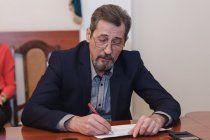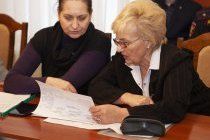 Русский
Русский English
English-







Conditions for the life and development of youth
Комитет по социальной политике, здравоохранению, труду, вопросам семьи и детства
One of the tasks set by the Republic's Development Strategy is state support of youth in the acquisition of their own housing. The republic has an affordable housing program for public sector employees through the construction of “unfinished buildings”. Last year, 436 apartments were commissioned under this program. Another area is the provision of housing for socially vulnerable categories of citizens: disabled defenders and orphans. Under state administrations of cities and regions of the republic, a program for allocating budget loans to young families is operating. Today, a family is considered to be young, where the age of one of the spouses has not reached the age of 35. Last year, the Supreme Council raised the youth limit.
The state intends to support young families, where there are specialists in professions that are in demand today: doctors, teachers, militia inspectors, officers of the Ministry of Defense, employees of the penal system of the Ministry of Justice, including bailiffs.
The Government has offered to provide such families with state subsidies for the purchase of their own housing. The amount of subsidies will depend on the composition of the family: 10 thousand US dollars for family without children, 12 thousand - with one child, 14 thousand - with two or more children.
Funds for these purposes are laid down in the republican budget for this year. This is 15 million rubles. The recipients of the subsidies will be citizens of the PMR who have not had a home for the past three years.
The state will compensate for the costs of repaying a bank loan and interest on it.
The law-in-draft was adopted in the first reading at the end of 2019. Since the beginning of the year, a number of workshops have been held with the participation of deputies and members of the Government. The relevant committee on social policy designed all the proposals in the form of amendments to the second reading. The document will be considered at the next plenary meeting, which will be held on February 5. It is planned that the law, after adoption, will enter into force 30 days after its official publication. This is due to the preparation of by-laws required for the implementation of the document.







